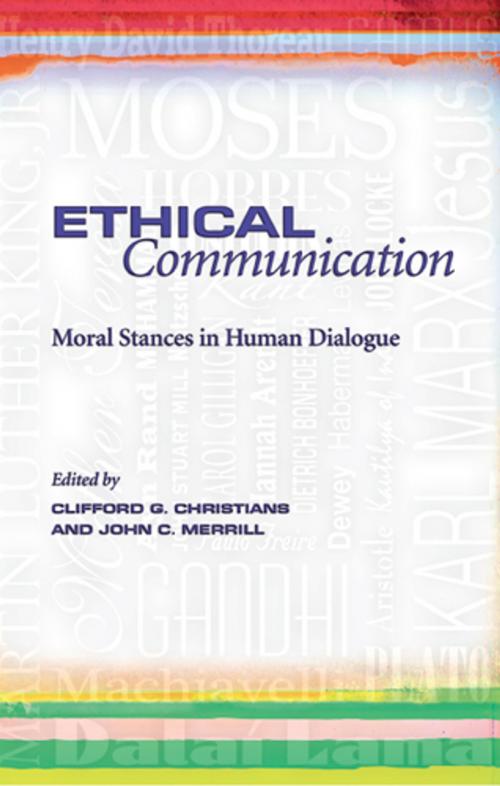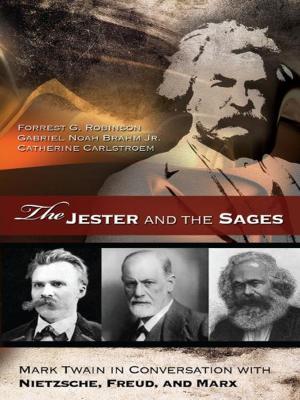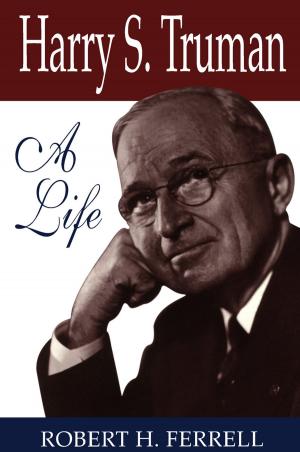Ethical Communication
Moral Stances in Human Dialogue
Nonfiction, Reference & Language, Language Arts, Journalism, Religion & Spirituality, Philosophy, Ethics & Moral Philosophy| Author: | ISBN: | 9780826271846 | |
| Publisher: | University of Missouri Press | Publication: | February 15, 2013 |
| Imprint: | University of Missouri | Language: | English |
| Author: | |
| ISBN: | 9780826271846 |
| Publisher: | University of Missouri Press |
| Publication: | February 15, 2013 |
| Imprint: | University of Missouri |
| Language: | English |
Proponents of professional ethics recognize the importance of theory but also know that the field of ethics is best understood through real-world applications. This book introduces students and practitioners to important ethical concepts through the lives of major thinkers ranging from Aristotle to Ayn Rand, John Stuart Mill to the Dalai Lama.
Some two dozen contributors approach media ethics from five perspectives—altruistic, egoistic, autonomous, legalist, and communitarian—and use real people as examples to convey ethical concepts as something more than mere abstractions. Readers see how Confucius represents group loyalty; Gandhi, nonviolent action; Mother Teresa, the spirit of sacrifice. Each profile provides biographical material, the individual’s basic ethical position and contribution, and insight into how his or her moral teachings can help the modern communicator. The roster of thinkers is gender inclusive, ethnically diverse, and spans a broad range of time and geography to challenge the misperception that moral theory is dominated by Western males.
These profiles challenge us not to give up on moral thinking in our day but to take seriously the abundance of good ideas in ethics that the human race provides. They speak to real-life struggles by applying to such trials the lasting quality of foundational thought. Many of the root values to which they appeal are cross-cultural, even universal.
Exemplifying these five ethical perspectives through more than two dozen mentors provides today’s communicators with a solid grounding of key ideas for improving discussion and attaining social progress in their lives and work. These profiles convey the diversity of means to personal and social betterment through worthwhile ideas that truly make ethics come alive.
Proponents of professional ethics recognize the importance of theory but also know that the field of ethics is best understood through real-world applications. This book introduces students and practitioners to important ethical concepts through the lives of major thinkers ranging from Aristotle to Ayn Rand, John Stuart Mill to the Dalai Lama.
Some two dozen contributors approach media ethics from five perspectives—altruistic, egoistic, autonomous, legalist, and communitarian—and use real people as examples to convey ethical concepts as something more than mere abstractions. Readers see how Confucius represents group loyalty; Gandhi, nonviolent action; Mother Teresa, the spirit of sacrifice. Each profile provides biographical material, the individual’s basic ethical position and contribution, and insight into how his or her moral teachings can help the modern communicator. The roster of thinkers is gender inclusive, ethnically diverse, and spans a broad range of time and geography to challenge the misperception that moral theory is dominated by Western males.
These profiles challenge us not to give up on moral thinking in our day but to take seriously the abundance of good ideas in ethics that the human race provides. They speak to real-life struggles by applying to such trials the lasting quality of foundational thought. Many of the root values to which they appeal are cross-cultural, even universal.
Exemplifying these five ethical perspectives through more than two dozen mentors provides today’s communicators with a solid grounding of key ideas for improving discussion and attaining social progress in their lives and work. These profiles convey the diversity of means to personal and social betterment through worthwhile ideas that truly make ethics come alive.















